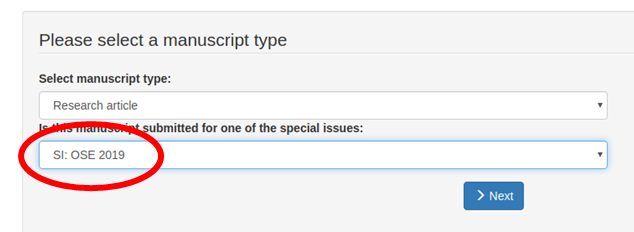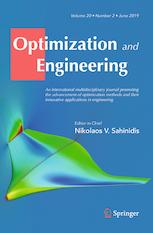Background and Scope
There is a need for technology improvements and further research in the area of optimisation in space engineering. Various problems such as interplanetary trajectory optimisation, optimal rendezvous guidance on non-circular spacecraft orbits, guided entry, descent and landing trajectories, as well as ascent trajectories for space access, were highlighted by the European Space Agency during the Polynomial Optimisation workshop that took place in August 2013 at the Isaac Newton Institute for Mathematical Sciences, Cambridge.
Since then, the OSE Working Group and associated events, have been aimed at providing space companies, universities, research institutes and organisations with a forum of excellence in the area of optimisation in space engineering. Interested parties have been invited to share their latest engineering problems and proposed solutions to promote the creation and exchange of ideas, and the identification of new trends and required developments. In addition to the latest theoretical advances in the field of applied mathematics for space engineering, OSE is also devoted to mathematical tools and techniques.
The 1st UK workshop on Optimisation in Space Engineering (OSE) was held on 5-6 November 2013 in Birmingham with one of the outputs being the formation of a national working group. The 2nd UK workshop on Optimisation in Space Engineering (OSE) was an event jointly organised by the Turing Gateway to Mathematics (TGM), the University of Birmingham, Astrium Satellites UK, the University of Southampton and the Aerospace Centre of Excellence at the University of Strathclyde on 19th-20th March 2014. The 3rd OSE was organised by the Aerospace Centre of Excellence at the University of Strathclyde in Glasgow 17th-18th September 2015. For the 3rd edition, participants were invited to share their latest engineering problems and proposed solutions, to promote the creation and exchange of ideas and the identification of new trends and required developments. A space challenge competition was run as part of this event, and an open discussion on this took place at the workshop. The challenges were chosen because of their relevance to actual space missions: Optimal Area Mapping for the Asteroid Impact Mission AIM, Optimal Trajectory for an Active Debris Removal Mission, Optimal Deployment Strategy and Constellation Management. The 4th OSE workshop was held for the first time outside the UK, hosted by the University of Bremen in Germany on March 27th – 30th 2017.
The 5th workshop on Optimisation in Space Engineering (OSE) was organised on the 21st-22nd November 2019 by the European Space Agency, the Aerospace Centre of Excellence and the Intelligent Computational Engineering Laboratory at the University of Strathclyde, the Jožef Stefan Institute of Ljubljana and ESTECO. This last edition was held in conjunction with the second Global Virtual Workshop (GVWII) of UTOPIAE (an H2020 MSCA ITN-ETN research and training network looking at cutting edge methods bridging optimisation and uncertainty quantification applied to aerospace systems).
This “Optimization and Engineering” Special Issue intends to collect many, diverse efforts made in the development and application of optimisation techniques to solve space problems. The issue seeks to collect the latest engineering problems and proposed solutions. In particular optimisation methods specifically devised, adapted or tailored to address problems in space applications or optimisation techniques that were demonstrated to be particularly effective at solving space and access to space-related problems are welcome.
Authors are invited to submit their original contribution on one or more of the following topics with applications to the analysis and design of space missions and systems (submission will NOT be restricted to works presented to the OSE workshop). Contributions presenting the application of optimisation techniques and methods already used in other filed to solve space engineering problems would be especially welcome.
• Global optimisation
• Local optimisation
• Polynomial optimisation
• Linear and non-linear optimisation
• Discrete optimisation
• Mixed integer nonlinear optimization
• Non-parametric optimisation
• Derivative-free optimisation
• Stochastic optimisation
• Multi/Mani-objective optimisation
• Multi-level optimisation
• Optimisation under uncertainty
• Optimal control
• Model predictive control
• Autonomous control
• Intelligent control
• Multidisciplinary design optimisation
• Routing, scheduling and planning
• Optimisation and parallel computing
• Optimisation and cloud computing
• Concurrent and collaborative optimisation
• Optimisation for expensive models
• Optimisation for large scale problems
• Surrogate-based optimisation
• Data-driven optimisation
• Machine learning
Submission Process, Format & submission guidelines
Interested authors can find at this link https://link.springer.com/journal/11081 instructions for preparing their manuscripts and a link for online submission. Once logged in, the authors should select Special Issue “SI: ODE 2019”

Important Dates
- 23 November, 2019: Submissions open
- 31st July 2020 (EXTENDED): Submissions close
- December 2020 circa (extended): Publication
- Buy tamiflu pill
- Where to buy remeron 30mg in Washington online
- Honolulu shipping skelaxin 400mg
- Promethazine pills rec use
- Montana lisinopril shipping
- UPS tamiflu 75mg delivery
- Zetia vs niaspan study
- Trandolapril verapamil generic
Guest Editors
Dr. Edmondo Minisci
Director of the Intelligent Computational Engineering Laboratory
Department of Mechanical & Aerospace Engineering
University of Strathclyde, Glasgow, UK
edmondo.minisci@strath.ac.uk
Dr. Annalisa Riccardi
Ass. Director of the Intelligent Computational Engineering Laboratory
Department of Mechanical & Aerospace Engineering
University of Strathclyde, Glasgow, UK
annalisa.riccardi@strath.ac.uk
Prof. Massimiliano Vasile
Director of the Aerospace Centre of Excellence
Department of Mechanical & Aerospace Engineering
University of Strathclyde, Glasgow, UK
massimiliano.vasile@strath.ac.uk


